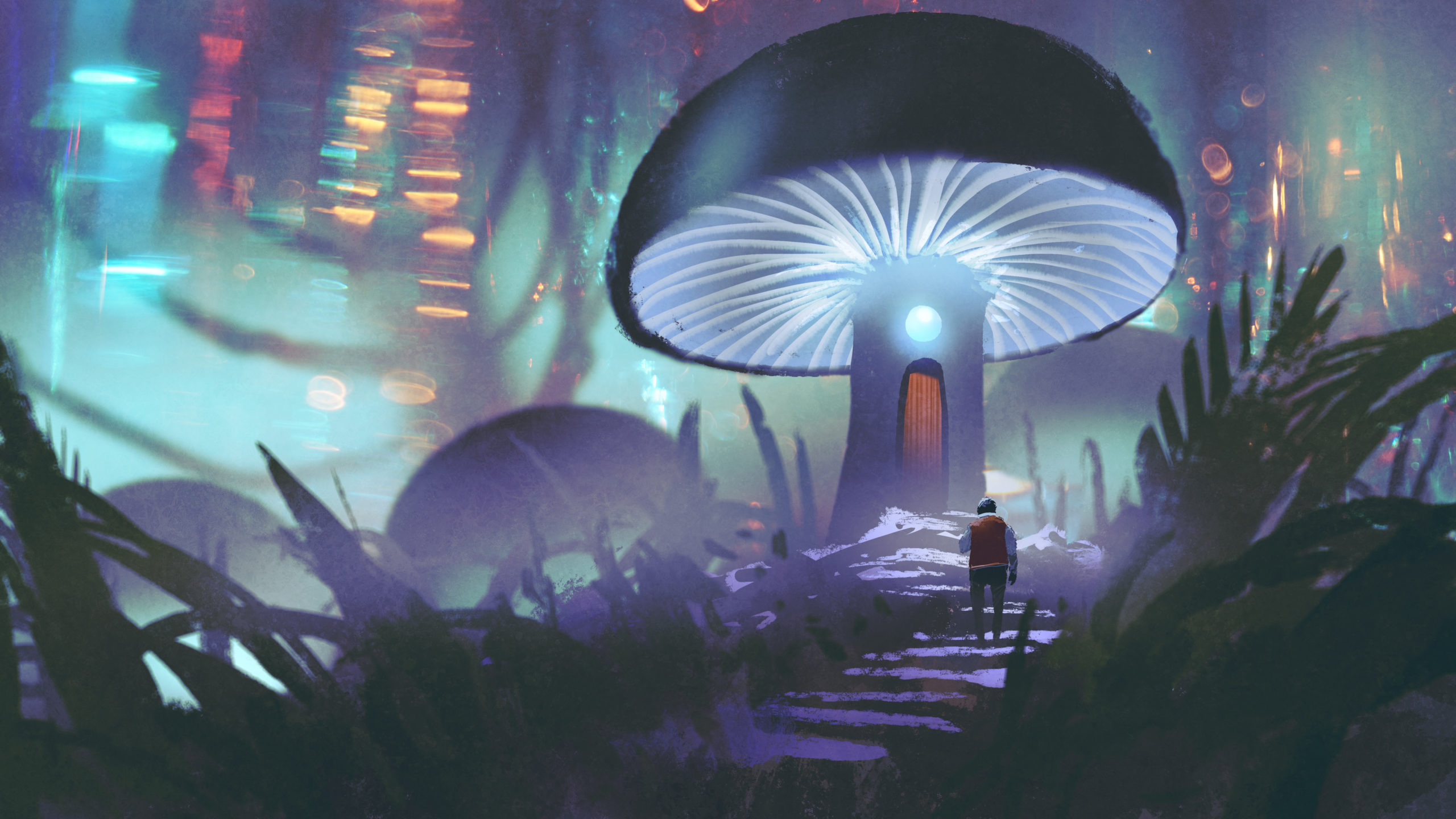Johns Hopkins Medicine opened a new center to study how psychedelics can treat mental health disorders. The center is the first in the United States, and the largest in the world, to focus specifically psychedelics as medicine not drugs. This historic moment marks a significant shift in the perception of Psychedelics.
A New Center for Psychedelic Medicine
The Center for Psychedelic and Consciousness Research continues the work begun by John Hopkins in 2000, when it became the first institution in the country to win federal approval to conduct psychedelic studies with healthy volunteers. Approval does not equal funding, however. Psychedelics are still classified as Schedule 1 substances by the DEA. That means federal government does not direct funds towards researching their medicinal benefits.
That’s where private donors have stepped in. For instance, several wealthy individuals and foundations are providing up to $17 million in funding for the Hopkins center. These include co-founder of WordPress Matt Mullenweg, and Blake Mycoskie, founder of the shoe company TOMS.
The contributions were largely organized by Tim Ferriss, an investor and author of “The 4-Hour Workweek.” Ferriss also personally gave over $2 million. His connection to the project isn’t just academic. “I grew up on Long Island, and I lost my best friend to a fentanyl overdose. I have treatment-resistant depression and bipolar disorder in my family. And addiction. It became clear to me that you can do a lot in this field with very little money.” Ferris said.
A Paradigm Shift for Psychedelics
The center plans to study the efficacy of psychedelic therapy with substances such as psilocybin, MDMA and salvia. Roland Griffiths, the center’s director and professor of behavioral biology at Hopkins Medicine, says “psychedelics are a fascinating class of compounds.
“They produce unique and profound change in consciousness,” he said. “The center will allow us to… develop new treatments for a wide variety of psychiatric disorders.”
As Schedule 1 classified substances, psychedelics are in the same category as heroin and cocaine. That association however continues to be discredited. Not far from John Hopkin, a study at the University of Alabama at Birmingham is studying psilocybin as a potential treatment for cocaine addiction. The support of such research facilities such as at John Hopkins, and studies at various institutions is crucial in dismantling this current classification of Psychedelic substances.
Given the number of lives the opioid crisis has and continues to claim, Sara Lappan, coordinator of the Alabama study, believes the time is right for a massive change in how psychedelics are viewed. She’s not alone.
For decades, “psychiatry [has been] one of the most conservative specialties in medicine,” said David Nichols, a medicinal chemist who founded the Heffter Research Institute in 1993 to fund psychedelic research. “The field was basically stagnant, and we needed to try something different.”
Back at Hopkins, Matthew Johnson, the center’s assistant director, believes they have found that something different.
“Overall we see psilocybin as a paradigm shift, a game changer in treating mental health disorders,” he said. “That, and for addiction, which is causing a staggering number of deaths.” In 2016, the opioid crisis was responsible for 42,000 deaths in the United State.
It’s Time to Take Psychedelics Seriously
Ferriss, who has championed the Psychedelic cause, funds several other centers in addition to the one at Hopkins. He hopes to “affect the timeline” of federal approvals for psychedelic drugs.
“Good science takes time,” he added.
Science may take time, and the government may try to stop time, but Psychedelics continue to move at astonishing speeds. And the results are quantifiable and real. Sara Lappan compares a dose of psilocybin to “10 years of therapy smashed into six hours.” Though the government still refuses to fund Psychedelic research, the overwhelming support for funding research efforts from the larger community alone shows it is time to take Psychedelics seriously.











